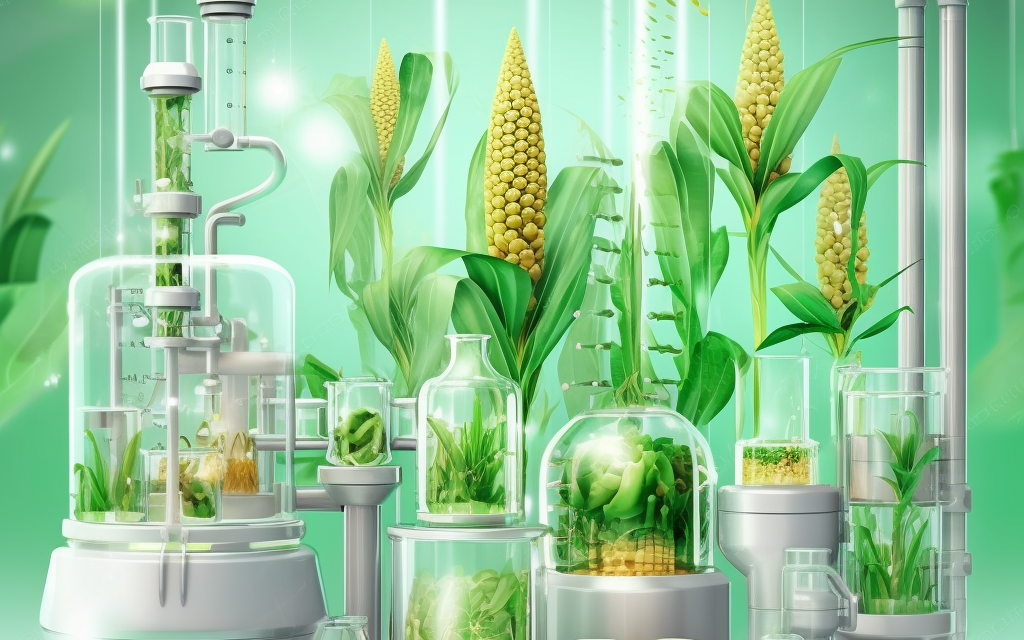Genetically modified foods, also known as GM foods or genetically engineered foods, are products derived from organisms that have undergone changes in their DNA through genetic engineering techniques. These techniques offer greater control over traits and the introduction of new traits compared to traditional methods like selective breeding. While genetic engineering has led to advancements in agriculture and food production, it has also sparked debates and concerns regarding food safety, environmental impact, and ethical considerations. In this article, we will delve into the controversies surrounding genetically modified foods while exploring their potential benefits.
Understanding Genetic Engineering in Food Production:
Genetic engineering involves altering the genetic material of organisms, such as plants, animals, or microorganisms, to enable them to perform new functions or produce new substances. This process allows for the introduction of desired traits into crops, such as resistance to pests or weeds, enhanced nutrition, and improved shelf life. Scientists employ techniques like cutting DNA, making recombinant DNA, gene cloning, and screening cells to achieve these modifications.
Addressing Agricultural Challenges:
One of the primary concerns for farmers is ensuring a good crop yield, which can be hindered by insects, weeds, and unpredictable weather conditions. Genetically modified crops have primarily focused on addressing insect and weed-related issues, significantly reducing the need for pesticides in some cases. By genetically modifying plants to repel specific insects, farmers can protect their crops while minimizing the use of chemical pesticides.
The Evolution of Genetically Modified Foods:
The development of genetically modified foods has progressed over the years. The first genetically modified plant, an antibiotic-resistant tobacco plant, was produced in 1983. Since then, various genetically modified crops, such as tomatoes, potatoes, maize, soybeans, and cotton, have been approved for cultivation in different countries. Golden rice, created in 2000, marked a significant milestone as the first genetically modified food aimed at increasing nutrient value.
Potential Benefits of Genetically Modified Foods
Enhanced Nutritional Value:
Genetic engineering has the potential to increase the nutritional content of food, creating more nutritious options for consumers. This advancement could help combat malnutrition and nutrient deficiencies on a global scale.
Improved Pest and Weed Management:
GM crops have been developed to resist pests and weeds, reducing the need for harmful chemical pesticides and herbicides. This approach promotes more sustainable and environmentally friendly agricultural practices.
Disease Resistance:
Genetic modifications can provide plants with increased resistance to diseases, allowing for better crop yield and reducing the reliance on chemical treatments. This development holds promise for ensuring food security in regions prone to crop diseases.
Extended Shelf Life:
By introducing specific genetic modifications, scientists have successfully developed crops with extended shelf life, reducing food waste and enhancing food availability.
Ethical Concerns and Controversies
Potential Allergenicity:
One concern surrounding GM foods is the possibility of introducing allergens from one organism to another.
According to the Centers for Disease Control (CDC) food allergies in children under 18 years of age have increased; from 3.4 percent between 1997 and 1999 to 5.1 percent between 2009 and 2011.
A key ethical concern about GM foods is their potential to trigger allergies or disease in humans. Given that a gene could be extracted from an allergenic organism and placed into another one that typically does not cause allergies, a person may unknowingly be exposed to an allergen. In turn, this could lead to an allergic reaction. There is also the fear that new allergies could occur from the mixing of genes from two organisms. There is a need for thorough testing and evaluation to ensure that genetically modified crops do not pose risks to individuals with allergies.
Environmental Impact:
The environmental consequences of genetically modified crops are still being studied. Issues such as cross-pollination, the spread of modified genes to non-GM plants, and the disruption of ecosystems raise concerns about unintended ecological effects. There is the possibility of genes from GM foods spreading to other plants and crops, which could create overzealous weeds that can’t be contained at all.
Any pesticide or herbicide from the crop could harm animals and other organisms in the environment. For example, GM sugar beets that were produced to be resistant to herbicides did successfully reduce weeds. However, Skylark birds that consume the seeds from this particular weed would now be required to find a new food source, thereby endangering their existence.
An animal could also consume the GM crop itself, which means that if the crop has been engineered to produce a pesticide, the animal may become ill and die. In one North American study, caterpillars of the monarch butterfly were killed when they fed on pollen from GM corn crops.
Long-Term Health Effects:
Limited research exists on the long-term health effects of consuming genetically modified foods. Some researchers express concerns about potential risks, such as the development of cancer or the transfer of antibiotic resistance genes to humans. Several animal studies indicate serious health risks associated with genetically modified (GM) food (AAEM 2009),” including infertility, immune problems, accelerated aging, faulty insulin regulation, and changes in major organs and the gastrointestinal system.
Ownership and Control:
The patenting of genetically modified seeds by corporations raises questions about farmers’ autonomy and the concentration of power in the hands of a few multinational companies. The debate surrounding intellectual property rights and the impact on global food security remains unresolved.
Conclusion: Genetically modified foods have the potential to address pressing agricultural challenges and provide solutions for global food security. They offer advantages such as improved nutritional content, enhanced pest resistance, and increased crop yield. However, ethical concerns persist, including potential health risks, environmental impact, and issues related to ownership and control. Striking a balance between technological advancements and ensuring the safety, sustainability, and ethical implications of genetically modified foods is a complex task. Continued research, transparency, and informed decision-making will play crucial roles in shaping the future of this controversial topic.
Disclaimer: The information provided in this blog post is for informational purposes only and should not be considered as professional advice. Readers are encouraged to conduct further research and consult with experts to form their own informed opinions on genetically modified foods.

